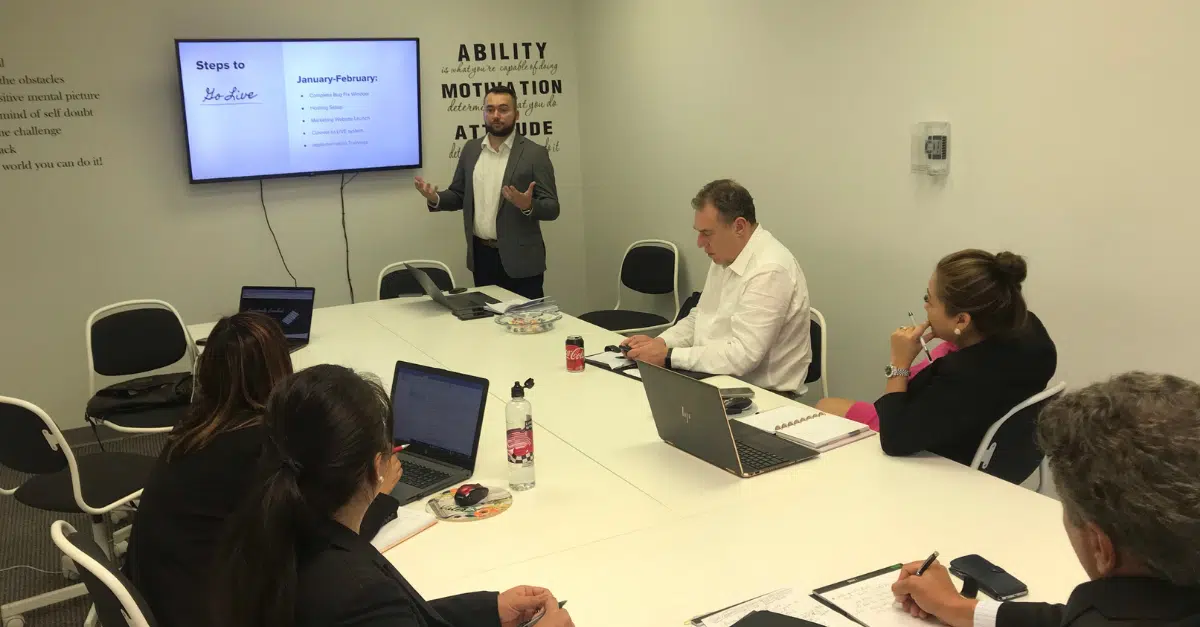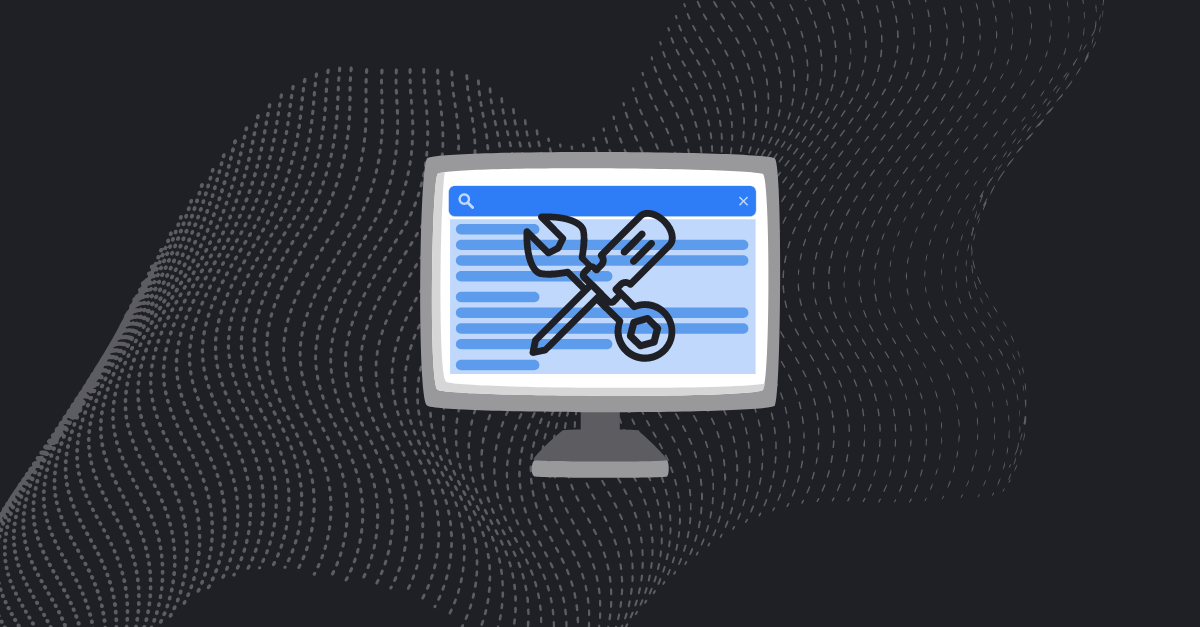There’s a key ingredient to successful software projects that a lot of business leaders don’t think about it.
And without it, your project can struggle or fail, even if you have the right technology partner.
So what is it? Having the right internal champion to guide your team and work closely with your development partner.
Sure, you can complete projects without one. But based on our experience helping hundreds of others, those projects tend to be challenging for both our clients and us.
To help you be successful when building software, keep reading to learn why you need an internal champion and how to choose the right person.
What an Internal Champion Does for Your Project
Think of your internal champion like the quarterback for your project. They’re the main point of contact (or product owner) that guides your team to the success and adoption of your new digital tool.
As your software development partner, we will do a lot of the work, of course. But successful products aren’t built without collaboration and teamwork. At first, we aren’t intimately familiar with your company’s operations. We don’t know its nuances, drivers, culture, personalities, etc.
Your team need someone who can help your partner understand your organization. They can facilitate communication between teams and ensure the right people are involved to solve the core problem at hand.
And they’ll lead your team through the entire process (called the software development lifecycle), which includes initial discovery, development, testing, and implementation.
Without this person, projects can drag out longer and run up costs. At worst, they can be total failures with no adoption from your team, despite your partner’s best efforts and documentation.
Let’s dig deeper into why having an internal champion can make or break the success of your project.
1. Helps Your Partner Understand Your Business and Main Pain Points
To build the right product, your tech partner needs to understand what makes your business tick and what the current pain points are. Is it an inefficient manual process? It is a lack of data-driven decision-making? Or is it a brand-new software idea that you’re trying to bring to life?
An internal champion is your spokesperson. They should have the ability to communicate and advocate for the “why” of your project and the problem at hand.
A team like SPARK has ways to conduct effective interviews and discovery exercises. But information from those meetings is only valuable if we’re talking to the right people. Your individual can be sure the right ideas and people are presented.
2. Helps Determine the Project’s Scope
The advantage of custom software is that you can build anything you want. But without focus, projects can lose their direction and end up with the wrong features. Or, you might try to build everything at once and realize it doesn’t solve anything well.
As your partner proposes various solutions and possibilities, we need someone on your team to have the knowledge and authority to communicate what functionality is needed and prioritized.
These initial decisions determine your project’s scope, which ties directly to your budget and costs. Different solutions with different functionality will cost various amounts.
An internal champion should be empowered to make decisions about functionality and budget to help guide what gets built and when.
3. Helps Get Buy-In from Other Employees
While often overlooked in the process, gathering support from other employees is vital. While you’ll need it throughout the entire project, it’s most obvious during these two project phases.
- Initial planning and feature prioritization
- Rollout to the entire team after go-live
In the beginning, generating support for the project is critical so that employees participate in information-gathering sessions. Employees often have great ideas for improving processes. But they will only share their ideas if they believe in the project and know their input is valued.
To increase participation, you can use SPARK Custom Software Planning Survey to help gather feedback and discuss what to prioritize.

After go-live, you also need buy-in during the rollout process. non-adoption is one of the greatest risks software projects face. You don’t want to be stuck with a new software tool that no one wants to use.
Implementing new software requires change, and humans have a natural resistance to change. But the internal champion should help employees overcome their resistance and embrace the new software.
4. Leads the Testing and Implementation Process
Your internal champion sees your project through its entirety. So, after the development stages are complete, you’re not at the finish line just yet. IT can’t simply install the new tool on your employees’ computer and call it a “job well done.” Unfortunately, that’s not the way it works.
During the final stages, the software needs tested for inevitable software bugs. Your project lead can help set up an easy process to catch, report, and remedy bugs with your partner.
Once tested and approved for go-live, your product owner can also help lead the rollout to the rest of team. Planning for this last stage can ensure the rollout minimizes disruptions and ensures adoption.
When you’re ready, follow our step-by-step Implementation Checklist to lead your team through a successful rollout.

5. Helps Support and Maintain the Product
Like many investments (e.g., your home, car, etc.), software needs to be maintained and supported over time to get the most out of it. By assigning someone to continually look over the project, you’ll be proactive with any support needs.
It also sets you up to be on the lookout for more opportunities to improve and build on your initial investment. With a new software foundation in place, what else is possible? How can you continue to move your organization forward with technology? The internal champion can help make sure that these opportunities are tracked, prioritized, and acted upon.
How to Choose the Right Internal Champion
The value of an internal champion can be pretty clear. But, how do you actually pick one?
Fortunately, your individual’s role doesn’t need to be a full-time job or a time-consuming role. But, you should look for certain skills and abilities to ensure they’re effective.
Here’s what you can consider when choosing the best person.
1. Standing and Influence within Your Organization
They must have some standing within your organization. This doesn’t mean you need to choose a senior person. But you want to pick someone who is well-respected within your organization and can communicate easily with others.
Put differently, you’re going to want a valuable and reliable employee to take this role.
Don’t think “this is a task no one wants, so I’ll give it to this low-performing employee.” That is NOT going to get the business results you are hoping for.
2. Project Management Skills
Software projects usually have many moving parts. There’s no way around it.
Of course, your development partner will help make it as easy as they can for you. But some complexity is an inevitable aspect of any project. Your designated person will perform best if they have direct or similar experience with project management. They need to understand what the role and responsibilities will entail.
3. Communication Skills
This one is a given for any type of project and software development is no different. There’s going to be a lot of relaying information between people, both your development partner and internal team members.
Moreover, some of the changes the new software brings will require employees to change their day-to-day way of doing things. Even good change can seem difficult.
So, you want your internal champion to be someone who can understand, empathize and communicate appropriately.
4. Understands Your Business
As stated above, you need someone who understands the ins and outs of your business. They need to call upon this expertise at each stage of the project so you don’t lose sight of what you’re building and why. And they need to feel confident about making decisions on both functionality and budget.
5. Cares About the Project
They should see and believe in the value of the project or a personal interest in seeing it succeed.
Without it, it’s easy for them to push the project down on their priority list. Even the most talented person may not be a great leader if they don’t care to see the project through. How can they generate enthusiasm from others if they don’t have it themselves?
6. Does NOT Need to Be Tech Savvy
Were you surprised this wasn’t listed as #1?
Contrast to assumptions, your product owner or champion does NOT need to be tech-savvy.
Are we sure? Yes! In fact, we’ve worked with plenty of successful champions that weren’t.
Of course, if someone is tech-savvy, that’s not a bad quality to have. But it’s by no means a requirement.
It’s more important for your champion to understand the business and the development process at a high level. Your development partner can walk you through the rest.
How to Prepare for a New Project
Ready to start your own project? Pass these project management tips along to your own internal champion to better prepare for a successful software project.

-2.png)









